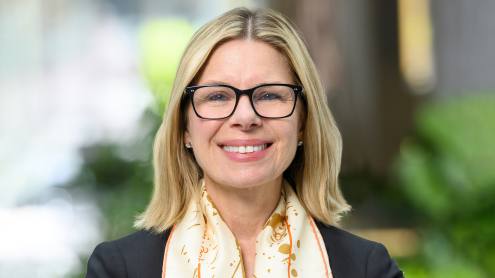Q: What do you see as the impact of the various political upheavals taking place across north Africa and extending to Yemen, Bahrain and Syria?
A: As far as Lebanon is concerned, these events in the Arab world did not have a positive or negative impact. There has been no positive impact because in the past three months Lebanon's political situation has been uncomfortable for the markets, due to the absence of a government. But neither has it been negative because commercial operations with the countries concerned are limited and the presence of Lebanese banks is based on our circulars, where they have sufficient capital to meet the risks that may come from their presence in these countries.
None of the regulators in these countries have mentioned any negative situation regarding Lebanese banks and the stress tests we have run show they are capitalised enough to meet all that is required in these countries without coming back on their holding companies in Lebanon.
Q: How do you see the performance of the Lebanese banks in 2010 and how do you see their prospects in 2011?
A: In 2010, banks directed more funds to the private sector and loans to the private sector exceeded those to the public sector for the first time in more than 20 years. This helped the economy grow by more than 8% in 2010 and it is clear that the credits extended were a major reason for that growth. Credit to the private sector increased by 20% in 2010 compared to 2009. The banks are healthy and are in compliance with Basel II and Basel III [standards], which is already observed here, so the banks had a good year in all aspects in 2010.
We should see the continuation of this trend in the banking sector in 2011, but it is still too early for exact figures. We prefer to wait some months before giving estimates on economic growth for 2011. I believe the regional developments will have a neutral effect; the key factors are the local environment and the degree of confidence and stability that will determine the growth in the economy and the banking sector.
Q: You are coming to the end of your third six-year term as governor of the Banque du Liban, would you like a fourth term?
A: The governor has a six-year mandate and after that he cannot be removed, but the appointment is a government decision. If it is their choice then I will accept my responsibilities; I will accept if I am offered, otherwise my term will end in July.
Q: Earlier this year on February 10, the Lebanese Canadian Bank was accused of money laundering by the US Treasury. What impact has this had on the Lebanese banking sector and what has the Banque du Liban done to resolve this potentially damaging issue?
A: The Lebanese Canadian Bank was hit by a decision by the US Treasury that it considered the bank was helpful for money laundering and, according to US laws, it is not allowed to do business with US banks. This decision was confined to the US and not in relation to other parts of the world. But because correspondent banking becomes impossible for the bank, and the fact that we have a dollarised economy, it prompted us to solve this matter in a drastic way. This was done using the merger law that allows a bank (Société Générale de Banque au Liban) to acquire the assets and liabilities [of Lebanese Canadian Bank] without being exposed to sanctions from the US Treasury.
Banque du Liban had constructive negotiations with the US Treasury to achieve this merger. We also had constructive discussions with the French central bank because the bidder chosen [Société Générale de Banque au Liban] is a subsidiary of a French bank in Lebanon. In having this platform we have been able to quickly solve the Lebanese Canadian issue.
Now [at the end of March] there is a process for execution that is being followed up. This takes time but it is already on the right track. The most important element for us was to ensure that Lebanese banks were not targeted [by the US Treasury] and we obtained this assurance. I think the issue now is under control and we are in the process of a solution.












